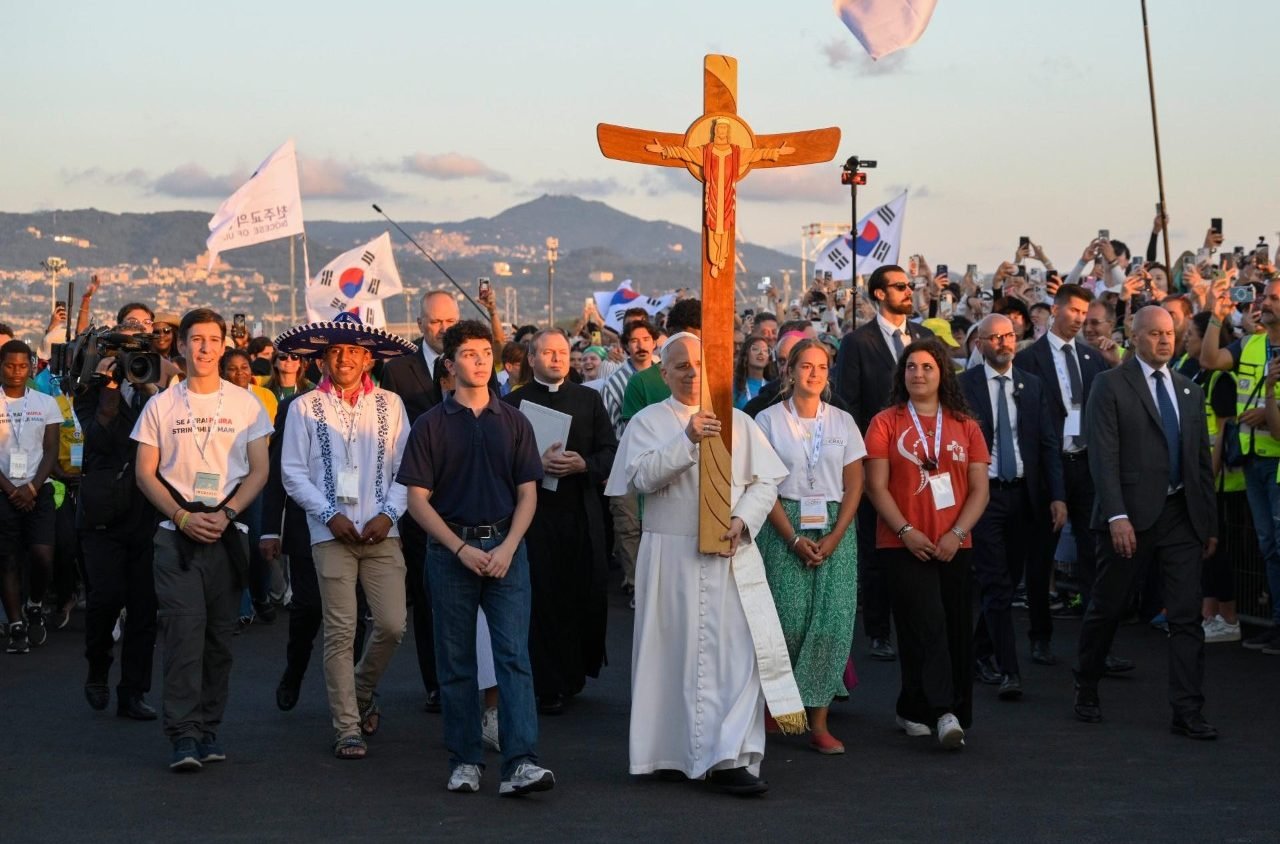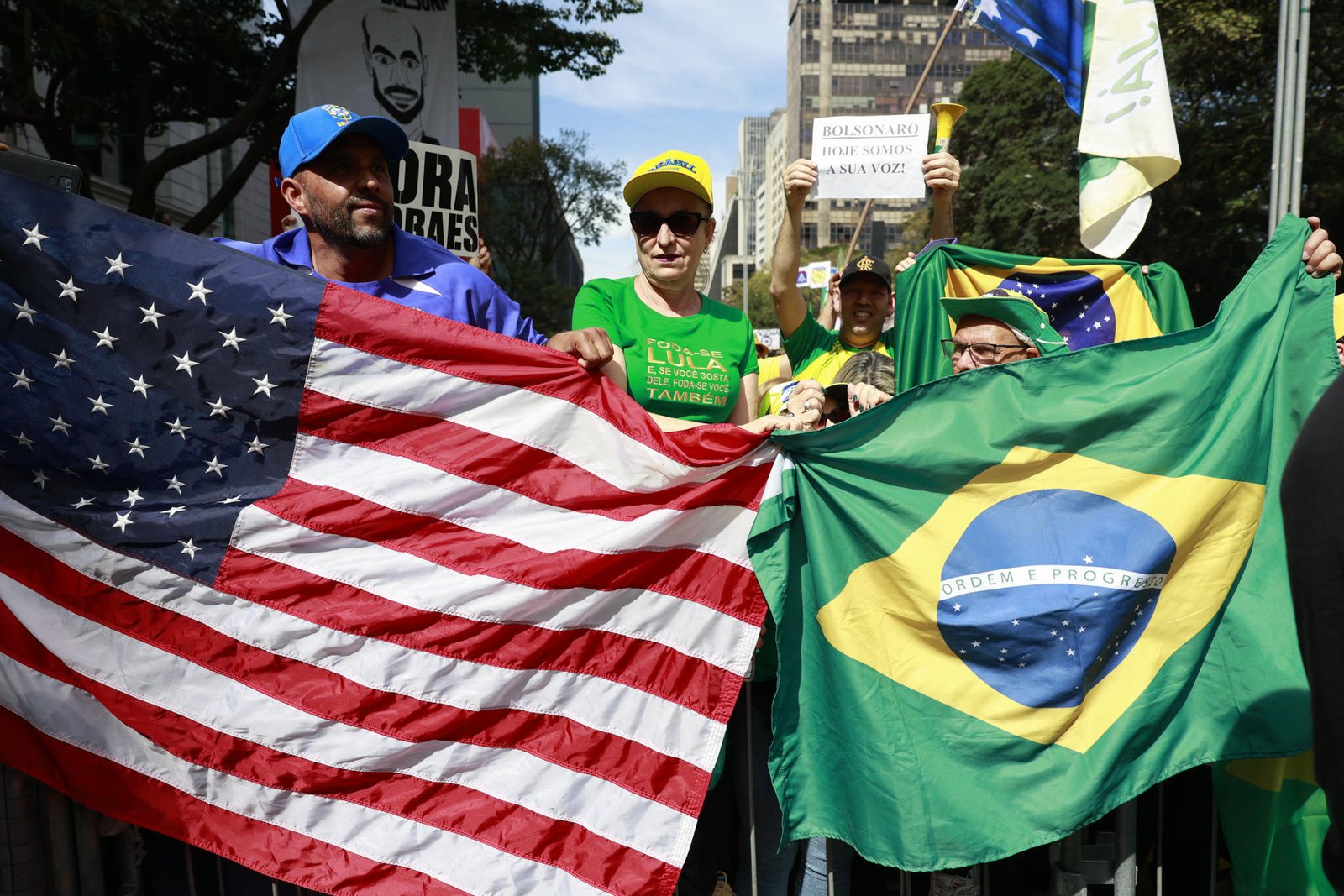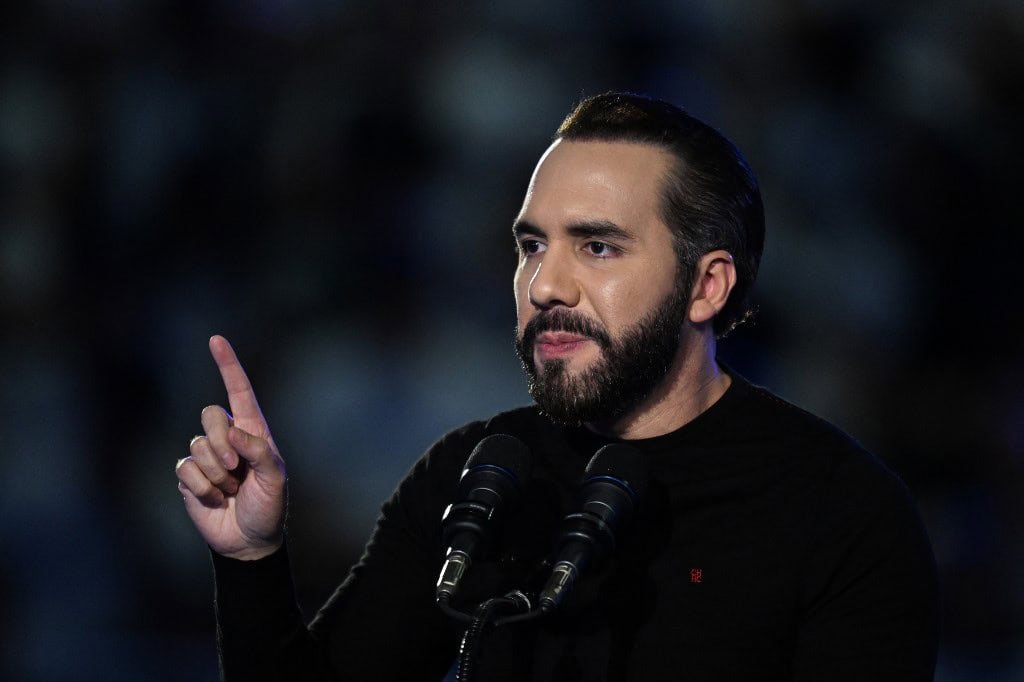
Andrea Monda, the Director of L’Osservatore Romano, reflects on the message of Pope Leo XIV at the Prayer Vigil for the Jubilee of Youth
By Andrea Monda
Over a million young people filled the vast expanse of Tor Vergata to spend an evening with Pope Leo XIV during the Jubilee Vigil for Youth and to take part in the Mass celebrated by the Holy Father on Sunday morning, 3 August. One is reminded of that sharp, direct question posed by Jesus in the Gospel of Matthew when, speaking of John the Baptist, he asks his disciples: “What did you go out into the wilderness to behold? A reed shaken by the wind? Why then did you go out?” (Mt 11:7).
The young people responded in many ways — by flooding the streets, squares, public spaces, and transport of the Eternal City with their joyful, exuberant energy. Their presence brought a kind of cheerful “commotion” (to borrow a word used by both John Paul II and Pope Francis) that will linger in the memory of the people of Rome for a long time.
But they also responded at the vigil itself, asking questions — almost as if turning Jesus’s own question back toward His Vicar on earth. They asked questions of meaning, of purpose. And the Pope answered. He embraced them, accompanied them, and did not leave them alone — reminding them of something Benedict XVI loved to say: “Those who believe are never alone.”
Religion, at its heart, is about relationship. This was one of the central themes of Saturday evening’s dialogue — a conversation held at dusk, reminiscent of that evening in Emmaus, when the day was already far spent. And from that perspective, perhaps the most fitting “commentary” on this powerful moment in the life of the Church on the outskirts of Rome can be found in the lines of David Maria Turoldo’s poem Emmaus:
While the sun is already setting,
you are still the traveler who explains the Scriptures
and offers us comfort with the bread silently broken.
Still enlighten our hearts and minds
so that they may always see your face
and understand how your love
reaches us and urges us out into deeper waters.
Tor Vergata as Emmaus. From dusk til dawn — from the descending darkness to a new light, rich with hope. Pope Leo made this clear in his Sunday morning homily, emphasizing the inner transformation of the two disciples — from fear and disillusionment to joy, sparked by the surprise of an encounter that was both unexpected and un-hoped for. A face-to-face encounter.
That immense crowd of young people went to Tor Vergata to see a face. And in doing so, to be touched by love. Not “to do” something, but “to be”. Not to do. To be, also in silence. Not to speak, but perhaps to sing. To sit together in silence; and to sing — together. Not alone. To live relationships as protagonists, recognizing that everything is relationship. Pope Leo expressed this clearly in response to the questions the young people posed to him:
“…[A]ll men and women in the world are born as someone’s children. Our life begins with a bond, and it is through relationships that we grow. […] By passionately searching for the truth, we do not merely receive a culture, but also transform it through the choices we make. Truth, in fact, is a bond that connects words to things and names to faces. Lies, on the other hand, divide these elements and lead to confusion and misunderstanding.”
— [Pope Leo XIV, Youth Vigil Address]
Truth, then, is also a bond — a relationship. Yet it is a relationship that today is under great pressure in our age of nihilism (from nihil, that is nehilum, literally “no thread,” no bond).
Truth can never be separated from love, which is the ultimate relationship. When someone says they are “in a relationship,” what they mean is that they love someone.
And once again, love is not about “doing” something, but about “being” with someone. There is nothing more beautiful — especially for young people — than simply being with others: with the one they love, with their friends.
When we are together, time itself seems to vanish — its chains are broken. Kronos becomes kairos: a time full of promise and meaning, of overflowing joy. A time where purpose reclaims the ground lost to the constant busyness of daily life.
The free, unearned experience of simply being together is already a foretaste of heaven.
That’s why Pope Leo, quoting his beloved Augustine, focused on the theme of friendship — a reality at the very heart of young people’s lives. He reminded them that the great African saint also “…had a restless youth, but he did not settle for less, he did not silence the cry of his heart. Augustine sought the truth, the truth that does not disappoint and the beauty that does not fade. And how did he find it? How did he find true friendship and a love capable of giving hope? By finding the one who was already looking for him, by finding Jesus Christ. How did he build his future? By following the one who had always been his friend” (Pope Leo XIV, Youth Vigil Address)
And he concluded with words full of hope: “Friendship can truly change the world. Friendship is a path to peace.”
That is the kind of love that reaches us and pushes us out into deeper waters.




